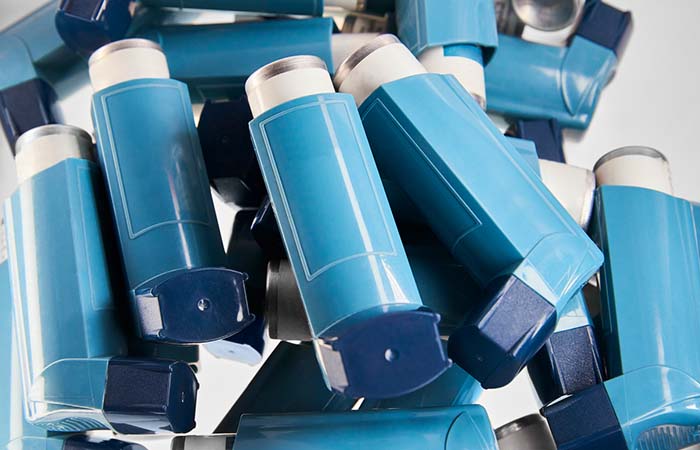Pharmacy inhaler disposal pilot boosts return rates by 300pc
In NHS & health news
Follow this topic
Bookmark
Record learning outcomes
A pilot scheme using a simple reminder to patients to return their unwanted and expired inhalers has led to a 300 per cent increase in the number of inhalers disposed of at local pharmacies.
The sustainability project, which involved five community pharmacies in Edinburgh, ran between February and May this year.
Stickers were added to dispensing bags encouraging patients to return inhalers to the pharmacy, resulting in a 300 per cent increase in return rates after using the stickers over a 10-week period.
Twenty inhalers were returned during the two weeks prior to the sticker initiative compared to 80 being returned after the project was complete.
Simon Gemmell of Fleming Pharmacy in Liberton, south Edinburgh, which took part in the pilot, commented: “As pharmacists we are aware of the impact of medicines on the environment and understand that if we are to reach net zero, we all need to play our part – including by reducing medicines waste.
“This project demonstrates that through small initiatives which aren’t time consuming or costly to implement, huge results can be achieved.
“A key part of this initiative was reminding people that inhalers can’t be recycled in the same was as other plastics and need to be returned, like all medicines, to a community pharmacy for safe disposal, and it’s really pleasing that this message has landed so well.
“The ongoing ability of community pharmacies to support initiatives such as these is dependent on having the appropriate resources to aid delivery.”
Katie Johnston, NHS Lothian’s respiratory care lead pharmacist, commented: “Lots of people use inhalers and often do not think about the environmental impact these can have.
“Community pharmacies are ideally positioned and essential to support improved respiratory care and help reduce the environmental impact of all medicines.”
Jane Hopton, the health board’s environmental sustainability lead, added: “The carbon footprint of respiratory disease is largely due to the current propellant gases found in some inhalers.
“These gases have 1,430 or 3,220 times the global warming potential of CO2, depending on the brand of inhaler.
“By disposing of used, unwanted or expired inhalers properly, we can ensure the safe destruction of the residual propellant gases, and in doing so help to reduce their carbon footprint.”
The project was funded by NHS Lothian Charity as part of its climate challenge grant initiative.

